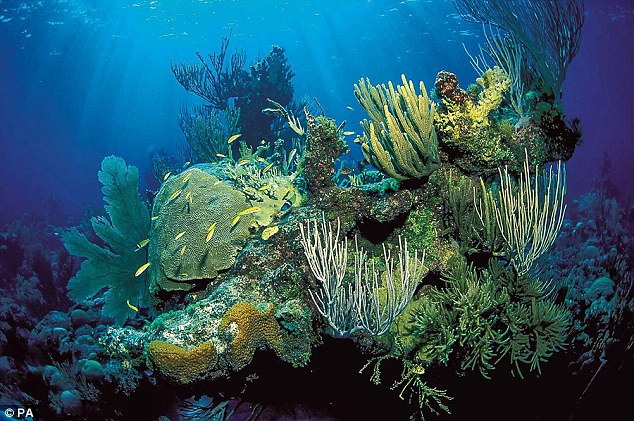-
Tips for becoming a good boxer - November 6, 2020
-
7 expert tips for making your hens night a memorable one - November 6, 2020
-
5 reasons to host your Christmas party on a cruise boat - November 6, 2020
-
What to do when you’re charged with a crime - November 6, 2020
-
Should you get one or multiple dogs? Here’s all you need to know - November 3, 2020
-
A Guide: How to Build Your Very Own Magic Mirror - February 14, 2019
-
Our Top Inspirational Baseball Stars - November 24, 2018
-
Five Tech Tools That Will Help You Turn Your Blog into a Business - November 24, 2018
-
How to Indulge on Vacation without Expanding Your Waist - November 9, 2018
-
5 Strategies for Businesses to Appeal to Today’s Increasingly Mobile-Crazed Customers - November 9, 2018
News Channel Daily: Ocean Life under Serious Threat from Carbon dioxide Emissions
“Between 1971 and 2010, the oceans have absorbed approximately 93% of the excess heat caused by global warming, leading to several major changes such as the increase in stratification, limitation in the circulation of nutrients from deep waters to the surface, and sea level rise”, the study said. Many more species will soon be affected if climate goals are not met, the reports says, pointing to the need to limit emissions to help reduce the impact of rising atmospheric temperatures and acidifying oceans. The oceans are becoming more acidic each day from the burning of fossil fuels, putting the ecological health of the oceans in jeopardy.
Advertisement
The report states specifically that a combination of climate change, ocean acidification, overfishing and the destruction of marine ecosystems as the main drivers for this change. One of the chief questions their efforts addresses is: “How will climate change affect ecosystems in the polar regions?”
According to the researchers, even after we have been able to curb the emissions of carbon dioxide (CO2) enough to prevent temperatures rising by more than 2C compared with pre-industrial levels, still, many marine ecosystems would still suffer. Contrasting futures for ocean and society from different anthropogenic Carbon dioxide emissions scenarios.
That, in turn, would have devastating consequences on the food security and livelihoods of millions of people-all within the next 85 years.
The analysis describes a wide range of possible responses, but notes the “consensus view” is that “immediate and substantial reduction” of global warming pollution is required no matter what. Two scenarios were analyzed. Warming causes mass mortality of warm-water corals through bleaching as well as through biotic diseases, resulting in declines in coral abundance and biodiversity.
Carol Turley, of Plymouth Marine Laboratory, a co-author, said: “The ocean is at the frontline of climate change with its physics and chemistry being altered at an unprecedented rate so much so that ecosystems and organisms are already changing and will continue to do so as we emit more Carbon dioxide”.
The study also makes a critical and often-overlooked point.
“Climate lag” requires an explanation of “thermal inertia”, a subject that seems complicated because we usually think of global warming in terms of atmospheric temperatures.
Advertisement
Climate change and global warming are two of the most serious threats our planet is facing at the moment, and if things continue this way, there will be irreversible consequences, scientists warn. Policy options that overlook Carbon dioxide, such as solar radiation management and control of methane emission, will only minimize impacts of ocean warming and not those of ocean acidification.




























